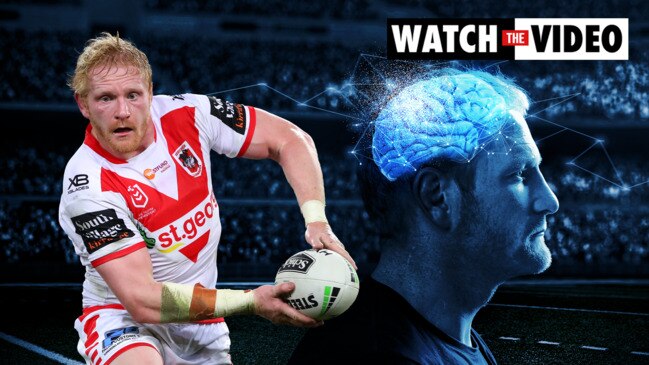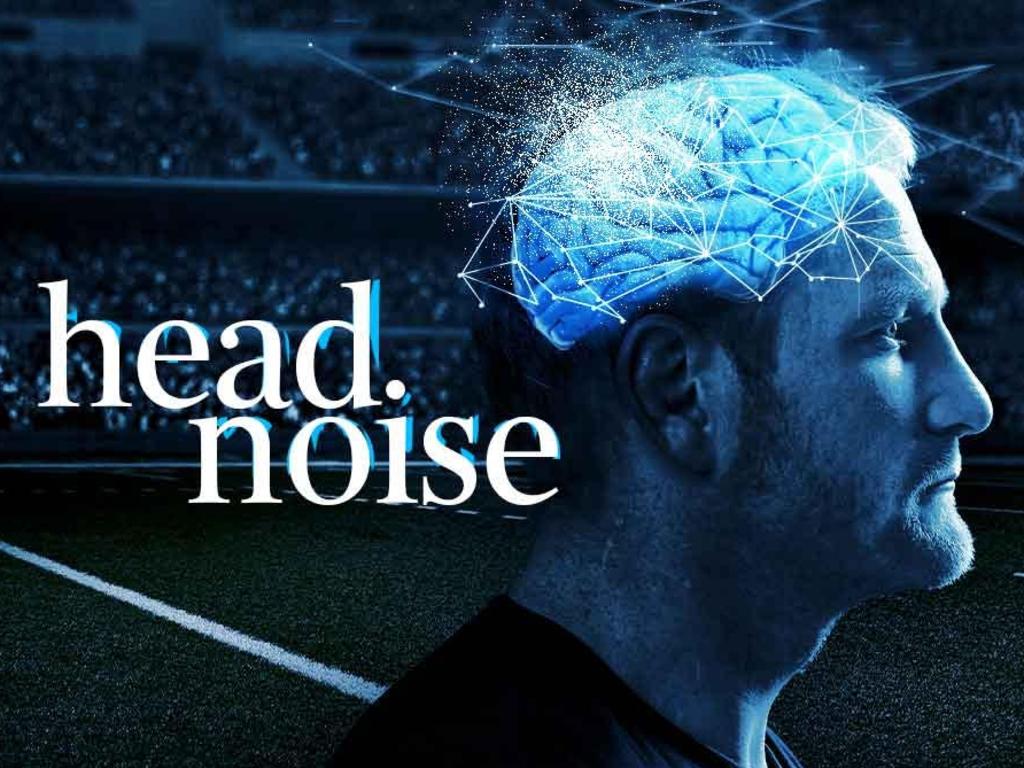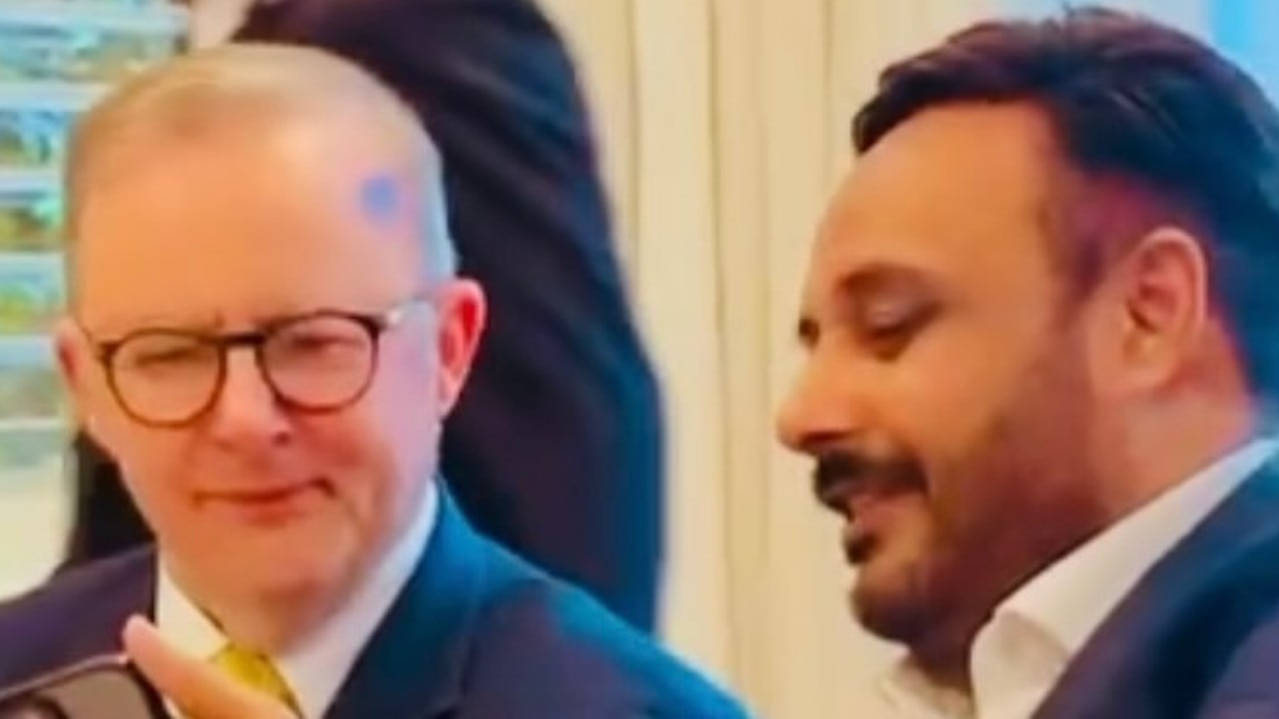NRL star James Graham’s raw truth in Head Noise podcast: ‘What have I done to my brain?’
In the first episode of The Australian’s explosive new podcast investigation, NRL legend James Graham begins his journey of finding out what exactly the game he loves did to his brain.

What has football done to my brain?
I’m 36 years old. I have a partner and two daughters
Every time I took the field, I was living in the present, with no regard for my future, pursuing my career as an elite athlete – no fear, no doubt.
Now it’s time to think about the future.
I’m a former professional rugby league footballer. I played from the age of eight and I retired in 2020 at age 34.
After almost two decades and more than 400 games, I’ve calculated I’ve been through 18,000 collisions and, by definition, more than 100 concussions.
That puts me right at the centre of the biggest issue in sport: head trauma and its long-term consequences.
If you followed my career – I played for St Helens in the UK Super League and in 2012 I arrived in Australia to play for the Canterbury-Bankstown Bulldogs, soon becoming captain, and went on to play for the St George Illawarra Dragons - you might know I’ve been, at times, a fierce defender of my own right to make decisions about my own health; whether to play on after a collision, how much time I needed to recover after a concussion.
Since my retirement, I’ve dealt with confronting realities about my own behaviour, and mental health. I’ve dealt with depression and anxiety.


I’ve had to examine my own response to the normal stresses of domestic life with little kids.
I’ve found myself frustrated over the smallest of things, the way the dinner table was set; the most meaningless things became issues that would tip my emotions over the edge. I knew it was coming but I couldn’t stop it; I could not regulate my emotions.
Medical experts say the potential symptoms of chronic traumatic encephalopathy are memory loss, confusion, impaired judgment, impulse control problems, aggression, depression, anxiety, suicidality, parkinsonism, and, eventually, progressive dementia.
I have my concerns and in this podcast investigation I will share them.
I have wondered: do I have CTE?
I was the first NRL player to donate my brain to the Australian Sports Brain bank.
I’ve worked with The Australian on the podcast investigation Head Noise because I don’t want sympathy or excuses.
I have seen my teammates suffer. I know of their reckless and destructive behaviour, and I know more must be done to help them.
I want to find answers and solutions, not just for me but for everyone who’s played a contact sport. This is my purpose in doing this podcast.
In today’s episode of the Head Noise podcast, I open up, revealing a story I had never told anyone outside my family until now.
In the autumn of 2016, I felt like I was losing my mind. I was losing control. Something was wrong, but I couldn’t quite put my finger on it. I was in a strange, dark place.
It should have been a wonderful time in our lives; my partner, Taryn, was pregnant with our first baby and I was playing the game I love at the highest level.
So one morning I sat down and I started writing a letter no person should ever have to write. It was to my unborn child, outlining who I was, what I’ve done in preparation for the worst, for a potential life without me … a sort of guide to the person I hoped our baby would become.
-
Listen to Episode One of Head Noise now.
-
I wanted my child to know who I was and I didn’t want them to grow with stories told about me by others – I wanted them to hear it from me.
Should I not be around or not be able to be a dad in the way that most of us just take for granted, on the front of the envelope I wrote the words: “Only open if the worst happens.”
I folded it up, and put it in the top drawer of a bedside table.
If you knew me at the time, you wouldn’t have thought any of this was going on.
I was the captain of the Bulldogs, a team from Sydney’s southwest with a reputation for playing my kind of football: tough, fierce, dogs-of-war mentality.
My attitude to concussion was this: the choice to remain on the field, after an athlete had suffered a head knock, should be his and his alone. Back then, I called the NRL’s director of football Todd Greenberg and demanded it be in the athlete’s hands, the decision to stay on the field after they had suffered a concussion - that is, if they had not been knocked out.
I want to make this clear. This investigation is not about putting down our game. The game I love, the game that has given me everything, but I want to try to grasp the effects and the unintended consequences of the way I played.
Throughout this investigation, I’m going to open up my life like never before.
I will also ask the difficult questions of myself, neurological experts, scientists, lawyers, sports leaders and other elite athletes, from Olympians to those in the AFL, rugby union and rugby league, as well as the parents of kids playing collision sport, in an effort to make the games we play better for all.
And I am willing to go where no other professional footballer has gone before. You’ll hear me going through brain scans and tests, talking to doctors and neuropsychologists. You will hear the results of those tests in raw audio recorded in doctors’ offices.
Nothing has been filtered out.
I have thought deeply about what’s the meaning of life … maybe for me the meaning of life is finding something worth dying for. Was that rugby league?





To join the conversation, please log in. Don't have an account? Register
Join the conversation, you are commenting as Logout